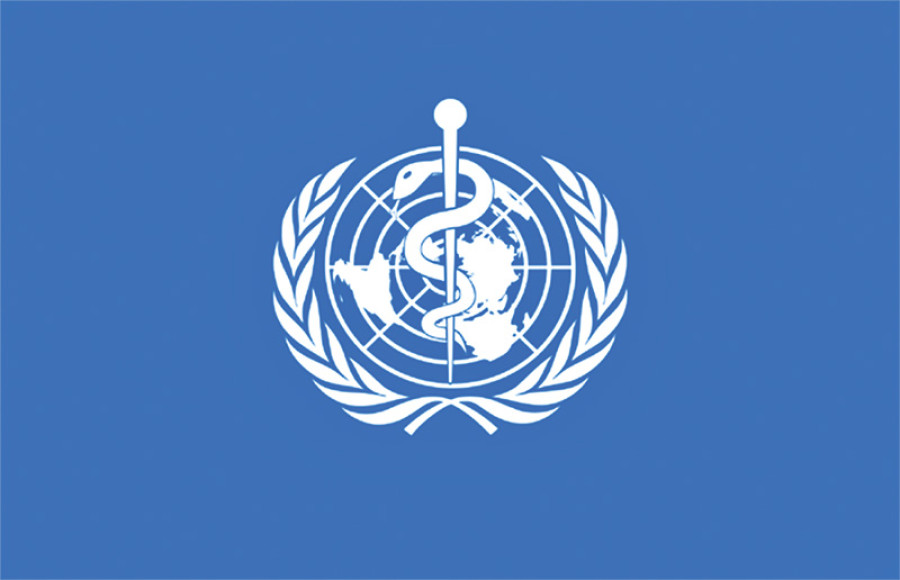Opinion
How WHO can support health
Despite unprecedented positive health outcomes, Nepal continues to have many challenges to overcome
Dr David Nabarro
When we were medical students, our teachers would ask: “What kind of a doctor do you want to be?” That is usually a signal to explain the specialism you want to follow: plastic surgery, cardiology, psychiatry, endocrinology—there are many possibilities. At the time I would respond that I wanted to be in a position to serve those who get sick, whoever they were, wherever they lived. Most of all I wanted to serve those who are most in need, who—without help—would suffer greatly or die. I wanted to be a good doctor, one who brought good quality care to those in need: who would help them keep healthy and avoid debilitating illness.
Health challenges
Some of my first years as a doctor were spent in Nepal. In the 1980’s in Kathmandu I worked alongside Hemang Dixit when he was Dean of the Institute of Medicine, as he was developing medical education. I learnt a lot from him. Generally my work was focused on children’s health, and on teaching and educating health workers in Sindhupalchok and Dhankuta.
It is a place I will never forget—rugged natural beauty paired with an incredibly resilient people, overcoming challenge after challenge.
This enduring resilience and general positivity, however, masks some real health challenges. The burden of disease in Nepal is far worse than it should be, driven by challenges in accessing food, clean water and health services. I saw disparities between rural and urban populations when I lived in Nepal, and these gaps continue to widen.
Great progress has been made, including improving child and maternal health. But when governments are not able, or not properly resourced, to spark change or respond to health emergencies, they look to the World Health Organisation (WHO).
The WHO helps countries work out how best to organise health services for their people, and help them to respond to infectious disease outbreaks—not an easy task, given every country has very different needs. So why am I the right person for the job?
Responsibilities of the DG
The Director-General is responsible for directing the WHO as it undertakes actions that impact on the health and well-being of billions of people. It is perhaps one of the most important jobs in the world. This deep ambition to help people and to improve their well-being drove me to work in Nepal, in Iraq, and across Africa—indeed in more than 50 countries so far.
That was my ambition then, and it is my ambition now more than ever. Perhaps that is the underlying reason why I am pleased to be nominated, by the UK, as a candidate to be the next Director-General of WHO. It is the role that I have been training for my entire life: my motivation comes from every patient I’ve ever treated, and from every community that I have served—including those so many years ago in Patan Hospital and Tribhuvan University Teaching Hospital.
Whoever runs the WHO must have proven experience in responding to disease outbreaks and emergencies, working in different national settings, and commanding the respect of international health professionals from the full range of government and non-government organisations.
The DG must also command the respect of many thousands of hard-working and dedicated health professionals, including midwives, nurses, pharmacists, laboratory workers, first responders and all kinds of doctors. This is especially important for those who fight for people’s lives on the frontline.
Preventing sickness means working with multiple partners inside and outside government, including science, civil society, faith groups and business, and making sure they work in synergy to deliver results. The DG must be able to work with everyone—whoever they are, wherever they live, whatever their needs.
Success only happens if the WHO is seen as attractive for investment—and not just by governments. The DG must be able to generate investments and show they are well used.
Working for health requires gender-sensitive strategies and a feminist perspective, with full involvement of women at all levels—especially as decision makers. The DG must commit to the realisation of all human rights. I want to see equal numbers of men and women decision makers at all levels of the WHO, within five years.
The DG needs the scientific background, the connections and the organisational ability to ensure that polio is eradicated, to advance efforts against HIV/AIDS, tuberculosis and malaria, to face up to chronic diseases and to tackle the emergence of super-bugs that are resistant to antibiotics (the problem of anti-microbial resistance, or AMR for short).
In addition, the DG must have experience of working with world leaders, politicians and funders and be familiar with the intricacies of the UN system. I have successfully served under several UN Secretaries-General working on Ebola, food security and nutrition as well as avian influenza.
WHO DG is a challenging and important role. It is huge, and it matters to everyone throughout our world, including those in Nepal. This is a country that helped shape who I am today, and I want to be there to help to shape the Nepal of the future, and the health of its people, especially women and children.
Nepal has seen impressive improvements in health outcomes over the last 10 years due largely to public health sector investments in primary care and stronger health systems. Despite achieving unprecedented positive health outcomes for a post-conflict country, Nepal continues to have many challenges to overcome if it is to further improve health outcomes for women and girls, children, the poor and socially excluded. The WHO is a vital organisation for a healthy world and I am passionate about ensuring it can deliver results for the people of Nepal.
Nabarro is one of three final candidates for Director-General of the World Health Organisation (WHO)




 9.7°C Kathmandu
9.7°C Kathmandu










